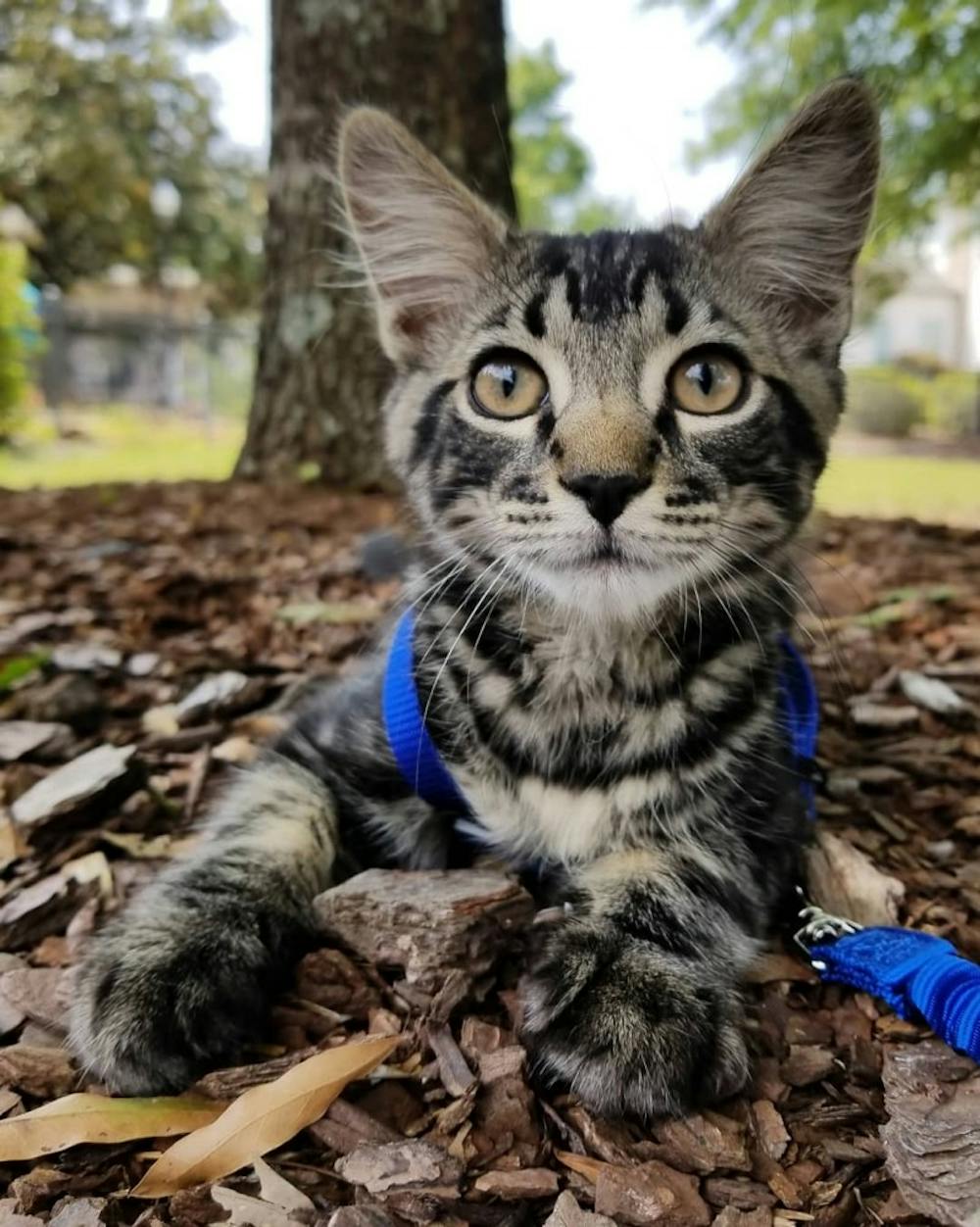Living with an animal in the dorms is not allowed, until it is.
Auburn University Housing has strict rules against owning a pet while living on campus, but when a student feels as though an emotional-support animal would benefit his or her mental health, Housing and the Office of Accessibility are there to help.
From as small as a fish to as large as a miniature pony, Auburn is flexible when accommodating the individual needs of its students.
Scamp, a small and playful grey and black kitten, was exactly what Joslyn Berg, junior in business analytics and management, was looking for to combat a bit of loneliness.
Berg, a resident assistant in the Upper Quad, does not have roommates because of her position, so she found herself lacking some of the kinship that a roommate would provide.
She didn’t lack a social life, and she has always had strong relationships with the residents in her building, but there was still a void that she started to notice developing.
She wanted to have someone that was always around but didn’t have the relationship aspect of having authority over them.
“I realized pretty quickly I was getting miserable on that level,” Berg said. “So I decided to talk to my parents and other people to try to figure out like what are solutions for this that I could reach out for because I still loved my job. I didn’t want to quit. It was a situation where I loved everything about it. I just hate being alone.”
After talking with the people in her life, the solution became clear for Berg, who grew up in a family that always had pets. And the process of getting the ESA was easier than she had expected.
The most common hurdle to overcome in the application process is discussing and getting consent from any roommates the student might have, but since Berg lives by herself as an RA, she didn’t have to worry about it.
The process starts with the Office of Accessibility, where the student has to explain how the accommodation of living with an ESA will be beneficial to the student. The office requires that a student must obtain a form of official documentation from a professional that explains the need for an ESA.
Berg said she’s never heard of anyone getting turned down by the Office of Accessibility. She said everything she has heard about the office has been positive, always working to assist in meeting the needs of students, whether it’s with academics or with housing.
The student must also provide vet records, and the details of the arrangement have to be worked out.
Then, the student has to fill out paperwork with Housing to take responsibility for care of the animal and for any damage to the property the animal might cause.
Generally, most animals, within reason, are accepted, and the student gets to choose.
The process is kept extremely confidential for the student.
The resident assistant in the building is notified as well as any roommate. Maintenance is notified when they must go to the room.
“It was a really straightforward process, and I’ve really benefited from it,” Berg said.
Housing reserves the right to remove the animal if it is not being neglected or if it is causing excessive damage.
“They do look after the animal in that respect, you can’t just go into your room and expect everything to be kosher,” Berg said. “There’s more to it than that, but they really do work with you.”
Almost all the required forms can be found on the Office of Accessibility’s website.
Berg has been living with Scamp for about five months, and she has absolutely loved it – little to no damage, polite and, ultimately, a much-needed companion.
“I have friends,” she said with a laugh. “I’m fine. It’s not like I don’t have that social life. But I’ve grown up with siblings all my life, so it was strange not coming home to sisters, and that transition to college was a little difficult for me – not coming home to something that lives with you and you can goof around with, play with and talk to and just have fun with. And my little cat has done a good job.”
Do you like this story? The Plainsman doesn't accept money from tuition or student fees, and we don't charge a subscription fee. But you can donate to support The Plainsman.





